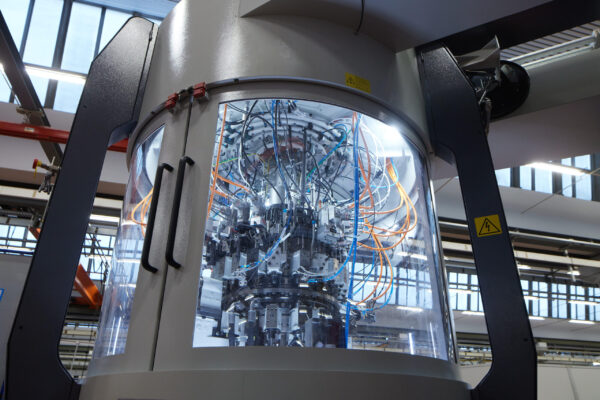At the time of the merger, Renewi management put in place a new divisional structure that more closely resembles customer groupings and needs: Commercial, Hazardous, Municipal and Monostreams. We forecast a material increase in trading profit by FY20e primarily driven by the synergies programme, but also underpinned by revenue growth and underlying margin expansion especially from FY18e onwards as the business integration develops.
Exhibit 1: Renewi pro forma trading profit split and trading profit margin evolution
|

|
Source: Renewi accounts, Edison Investment Research
|
Commercial: The main driver and in recovery mode
Representing 63% of pro forma FY17 revenues, with exposure to the Benelux commercial, construction, demolition and municipal collection markets, the new Commercial division is currently focused on implementing the merger and delivering synergies and margin expansion against a backdrop of recovering end markets.
The unit is a combination of VGG Collection and the former Shanks Commercial division and is a leader in waste management in Benelux. Operationally, it is active across the value chain from collection to sorting, processing and ultimate disposal via incineration or landfill. Consistent with Renewi’s ‘waste-to-products’ strategy, the Commercial division recovers and resells products such as paper, cardboard, wood and plastics. More specialist products are processed by the Monostreams division. The Commercial division is active in three main end-markets:
■
Industrial and commercial (I&C): I&C deals with pre-sorted waste and mixed waste, comprising waste sources from factories, hospitals, offices, shops and restaurants. It has several initiatives in place with customers to increase separation at source, which reduces its costs and enhances the quality of recycled products. Excess capacity in the Dutch incineration market between 2011 and 2015 put severe pressure on prices and margins, however utilisation levels have recovered and so has the pricing environment in the sector. The introduction of dynamic pricing – altering the collection price for waste depending on the resale commodity value of recovered recyclates - on gate fees has derisked the model by passing on secondary recyclate price risk to waste producers.
■
Construction and demolition (C&D): C&D waste arises from residential, commercial and infrastructure construction. This former Shanks business was profoundly challenged by the fact that Dutch construction activity hit a 63-year low in 2014. While a volume recovery is underway, many major customers are still suffering from historically low margins.
■
Domestic: With an operational focus on municipal waste collection, the Domestic segment services local authorities by either a service agreement or a public-private partnership. Contract durations tend to be much shorter than in UK municipal contracts, which can be beneficial in providing opportunities to exit unprofitable contracts. Further contrasts include the collection-only nature of the Benelux municipal market plus the fact that the waste remains the property of the municipality.
Exhibit 2: Renewi’s Commercial business model
|

|
|
|
FY17: Strong signs of recovery
Both the Belgian and Dutch Commercial Waste businesses within Shanks witnessed trading profit growth in FY17 in local currency, with the 27% increase converting to 47% growth in sterling due to the weakness in the pound. Trading margins increased from 5.2% to 6.5% across the whole business. The strong results were led by end-market recoveries in C&D and I&C in the Netherlands, while the Belgian growth was more muted. Margins expanded due to top-line growth as well as ‘self-help initiatives’.
Outlook: Continuing growth
Recovery in Benelux (especially Netherlands) commercial waste is a key component of the earnings story to FY20e. There are clear economic data that support the continuation of the positive trends already witnessed in this market. Exhibit 3 shows a long-term view of the Dutch construction sector in terms of both output and business sentiment from key operators in the sector. As can be seen, the most recent trough in activity and sentiment was in late 2013 and early 2014. Since then, both sentiment and activity levels have recovered significantly. In late 2015, sentiment moved into positive territory and has continued on an upwards trajectory, with positive sentiment now in line with previous market peaks in 2000 and 2008. Construction sector activity has some way to go to reach previous highs but with sentiment continuing to improve (it has been a very reliable lead indicator until now), together with positive economic newsflow from the eurozone, we are confident Renewi can continue its current positive growth trajectory in its key Netherlands waste business.
Exhibit 3: Dutch construction sector activity and business confidence
|

|
Source: Bloomberg data as at 3 July 2017
|
Management guides to underlying growth in FY18 driven by end market recovery. There is a slight risk that merger integration could be a drag on performance over the year. However, after merger synergies and currency are taken into account, we forecast the Commercial division to grow underlying trading profit by 6.9% in FY18 vs FY17. Over the longer term, we forecast a three-year trading profit CAGR of 21.1% driven by a mixture of recovering end markets, benefits of scale allowing Renewi to gain share by offering competitively priced integrated services and finally the positive impact of continued efficiencies to FY20.
Exhibit 4: Commercial division – pro forma trading profit and margin evolution
|

|
Source: Renewi accounts, Edison Investment Research
|
Hazardous: Highly profitable despite softness in oil
Accounting for 12% of pro forma FY17 revenues and with operations primarily in the Netherlands, the high-margin Hazardous division specialises in industrial cleaning. It is a combination of Shanks Hazardous Waste and VGG’s Industrial Services division (VGIS). The division has struggled in recent years with slower revenue growth as the core end-market (more than 50% of revenues) of oil and gas has contracted, but other key verticals include heavy industry and the food industry. It has treatment facilities for contaminated soil and water and can provide integrated waste solutions for companies managing hazardous waste streams that require permitting and environmental control. Long-term drivers include contaminated soil arising from brownfield land development in the Netherlands.
Exhibit 5: Renewi’s Hazardous waste business model
|

|
|
|
FY17: Oil soft but new initiatives contributing positively
Shanks’ Hazardous division reported a strong increase in trading profit – 9% in euros and 24% in sterling – with soil treatment strength and cost reductions more than offsetting continued softness in oil and gas. New technologies such as ultrasonic cleaning also contributed. Trading margins increased from 11.4% to 12.1% year-on-year.
Outlook: Pipeline, self-help and innovation underpin growth
Management expects growth in FY18. A strong pipeline of soil and water intake, plus currency tailwinds help to drive our assumed FY18e trading profit growth of 12.2%. The oil and gas sector is forecast to remain soft for the foreseeable future. However, as environmental legislation becomes more stringent, so hazardous waste treatment capabilities should lead to further growth. This plus a more general economic recovery in Renewi’s key end markets drive our three-year trading profit CAGR of 7.2%.
Exhibit 6: Hazardous division – pro forma trading profit and margin evolution
|

|
Source: Renewi accounts, Edison Investment Research
|
Municipal: Industry-wide issues in UK being addressed
The former Shanks Municipal Division contributed 14% of pro forma FY17 revenues and provides local authorities in the UK and Canada with integrated waste management solutions. In recent years, a series of issues around the construction of waste treatment facilities and problems with local authorities have led to loss-making years. Management is taking actions to tackle the issues facing the Municipal division. A recovery programme and new management team have been put in place. The recovery plan seeks to increase capacity utilisation at waste processing facilities, which will help to cover high fixed costs and generate more power. In addition, the new team aims to enhance the quality and therefore achievable price of the recovered fuel as well as renegotiating offtake agreements for refuse derived fuel (RDF) and solid recovered fuel (SRF).
Exhibit 7: Renewi’s Municipal business model
|

|
|
|
FY17: UK Municipal challenged and recovery plan put in place
The UK Municipal business swung from a £7.8m profit in FY16 to a £4.2m loss in FY17. Over the year, the Canadian business also saw a 15% decline in trading profit to £1.7m. Trading margins declined to -1.8% from 5.1% in FY16. Several of Renewi’s UK treatment facilities, including Wakefield, BDR (Barnsley, Doncaster, Rotherham) and Westcott Park experienced a range of issues over the course of the year. The plant under construction in Derby (where Renewi is not the EPC contractor, which therefore limits the negative impact although it delays the cash flows) is facing ongoing delays due to the exit of a technology supplier.
Outlook: Bleeding to be stopped but minimal upside in the short term
We forecast the Municipal division will return to profitability in FY19 as the recovery plan takes effect. However, we remain cautious about profitability and growth prospects thereafter for several reasons. Firstly, Municipal customers continue to experience pressure from central government on costs. Also, an increasing number of listed waste companies (Viridor/Pennon, Augean) are experiencing similar profitability issues with waste-to-energy plants. Namely, capacity utilisation has to be very high for such assets to break even. On the whole, we believe in management’s ability to arrest the deterioration in operations witnessed in FY17, but we do not expect a meaningful return to operating profit contribution within our forecast period. However, with the right management team in place, we can see Renewi recovering some value from this business in the medium to long term.
Exhibit 8: Municipal division – pro forma trading profit and margin evolution
|

|
Source: Renewi accounts, Edison Investment Research
|
Monostreams: Revenue diversification
With international operations spanning Benelux, France, Germany, Hungary and Portugal, the new Monostreams division is a combination of three former VGG divisions – Coolrec, Maltha and Minerals – and a former Shanks unit – Orgaworld. The combined division contributed 11% of Renewi’s pro forma FY17 revenues. Monostreams’ core activity is the production and sale of recycled materials such as glass cullet, plastic chips/ granulates and fertilisers. It is the number 1 in Europe in recycling and trading of glass ‘cullet’, the number 1 handler of mineral waste in the Netherlands and number 2 in organic waste processing in the Netherlands.
Exhibit 9: Renewi’s Monostreams business model
|

|
|
|
Outlook: FY18 – the first year as a division
Management guides to growth in FY18 in all four of Monostream’s businesses. We forecast 10.3% growth in FY18 trading profit and, based on the strong outlook for these services, factor in a three-year trading profit CAGR of 8.4%. Given the fact that the unit was merged from various entities from within Shanks and VGG, there is little historical data.
Exhibit 10: Monostreams division – pro forma trading profit and margin evolution
|

|
Source: Renewi accounts, Edison Investment Research
|


























